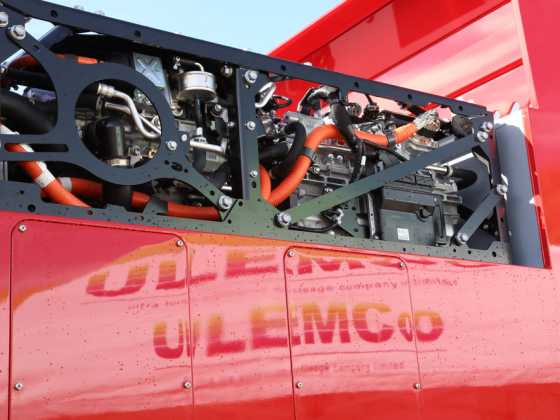The importance of the used-EV market

The second-hand electric vehicle market is crucial to meeting the government’s decarbonisation targets. So how can it be stimulated to boost demand and stabilise prices?
With new electric vehicles (EVs) still proving to be more expensive than their petrol and diesel counterparts, many prospective EV buyers look to the second-hand market.
Auto Express estimated that in the first quarter of 2024, 41,505 used electric cars entered the market – a two-third increase on the same period in 2023.
However, the British Vehicle Rental and Leasing Association (BVRLA) found in a recent survey that the value of used EVs has fallen by 50 per cent over the last two years. They also warned that the sector could see further drops later down the line if no action is taken.
While this creates a short-term benefit to used-EV buyers, it comes at a huge cost to the finance companies and dealers who have pressure to increase the monthly lease rates for new EVs to cover their potential losses. This therefore affects buyers of new EVs.
BVRLA chief executive, Gerry Keaney, said: “New EVs are expensive while used EVs are stunningly cheap and getting cheaper, but someone needs to pay for this price gap.
“It is motor finance companies and new EV drivers that are footing the bill, through massive depreciation and increased lease rates. These are the fleets and customers that have been responsible for driving demand for EVs up to now. We cannot afford for them to lose confidence in the transition.”
Battery standardisation
In Labour’s automotive sector plan, the party said they would support buyers of second-hand electric cars by standardising the information supplied on the condition of batteries.
This plan was discussed at July’s meeting of the Vehicle Remarketing Association (VRA).
Philip Nothard, chair at the VRA, said: “One of the recurring themes of our discussions at the meeting was that arriving at a standard measure of battery health is quite difficult – there are many ways to measure battery health and present the results, as well as question marks over which are most meaningful to consumers. The government has some quite tricky decisions to make.”
The Association of Fleet Professionals’ (AFP) Paul Hollick said he believes a government-standardised battery health check would be very useful, providing a high degree of reassurance for used EV buyers. But he cautions that more also needs to be done to stimulate the second hand market.
He said: “We believe that this is an area that almost certainly needs a degree of financial support, such as through used EV grants or low-cost loans. How likely we are to see those moves from a Labour Party that continually stresses the need for financial control is open to question, however.”
Zemo’s guide to used EVs
Zemo Partnership, an independent non-profit partnership, works with the government and their members to help shape future policy, create influential transport initiatives, and provide advice to those working to reduce transport emissions.
In April, the organisation published a new Best Practice Guide, which aims to help those that sell or assist in the selling of EVs consistently communicate key information to prospective buyers of used EVs.
Zemo said it launched the guide to help buyers of battery electric vehicles (BEVs), in particular, as they need to understand new categories of information, different units of measurement and an array of new features
and capabilities associated with electric propulsion.
Zemo hoped the guide would also help to dispel a lot of confusing information that buyers can come across in their research.
It is specifically tailored for those involved in selling used EVs, whether online or in person. Through the guide, used car dealers are provided with direction on what information should be included in sales materials for electric cars and the reasons for its inclusion. Through this route, Zemo aims to provide consistency and clarity across the consumer’s used EV purchase journey.
Report author Zemo’s Naomi Brandon-Bravo said: “Making an informed decision to buy a used electric vehicle requires time and research. I hope that by explaining and clarifying many of the key terms and things to consider when buying a used EV, more consumers will be encouraged to make the leap into an electric motoring future.”
Happy EV After Campaign
To stimulate and restore confidence in the used-EV market, the BVRLA has launched the #happyEVafter campaign, in conjunction with Auto Trader, EVA England and the NFDA.
The coalition is asking the government to launch an information campaign to counter negative EV myths, support standardised battery health certificates, and launch a targeted Used EV Plug-in Grant. It also calls for a cut on VAT on used EVs by 50 per cent for four years, provide 0 per cent Benefit-in-Kind tax rate for used EVs for four years, and allow the Civil Service to access used EV Salary Sacrifice schemes.






